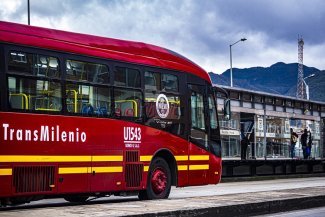Jair Bolsonaro’s government, elected at the polls in 2018, has completed its first four months of office, immersed in an internal crisis with an unprecedented level of opposition and a string of controversial measures.
With a diverse team that combines economists, technocrats and ultraliberal ideologues, as well as military officers and evangelicals, it is still difficult to say what direction this government will take. What does seem clear however, as far as human rights and sustainable development are concerned, is that the measures adopted so far threaten Brazil’s compliance with the Sustainable Development Goals defined in the United Nations 2030 Agenda.
During the presidential race, Bolsonaro stated that, if elected, he would take Brazil out of the UN Human Rights Council because, according to him, it is useless. In spite of subsequently retracting this statement, the position of the then presidential candidate was an early warning of his lack of commitment to multilateralism.
Concrete measures along these lines were not long in coming: on the eighth day of the Bolsonaro administration, Brazil announced it was leaving the Global Compact for Migration, claiming that Brazil is a sovereign country that will decide for itself whether to accept the entry of immigrants or not.
According to the president himself, the compact was adopted “by third parties”, as if Brazil had not taken part in the debates. Negotiated since 2017 in response to the global migration crisis, the compact was approved by more than 160 countries at the UN Intergovernmental Conference in Marrakesh in December 2018.
Moving away from the diplomatic work carried out by the governments of Luiz Inácio Lula da Silva (better known as Lula) and Dilma Rousseff, both in the region and globally, the new government promises an ideological cleansing of international relations. While the first two helped to strengthen the Global South and earned the respect of the US and the European Union, Bolsonaro, on his first international trips – to Argentina, the US and more recently Chile and Israel – has chosen to return to a submissive, subordinate agenda.
A setback for development
The measures taken by this government in its first months suggest that the next four years will be spent pulling out of the global sustainable development pacts that Brazil has signed up to. Current indicators suggest that the country will reach almost none the 17 development goals. This is in contrast with the achievements of just a few years ago, when this American country was the most advanced in the fight against hunger and extreme poverty in the world.
According to the study Synthesis of social indicators, an analysis of the living conditions of the Brazilian population, published by the Brazilian Institute of Geography and Statistics (IBGE) in December 2018, in just one year, Brazil had almost two million more people living in poverty.
Figures show that in 2016 there were 52.8 million people living in poverty in the country. In 2017, this figure rose to 54.8 million, an increase of almost 4 per cent, and equivalent to 26.5 per cent of the total population of Brazil, estimated at 207 million.
And we should not forget that the approval of Constitutional Amendment 95 of December 2016 - which set limits for 20 years on the federal public budget, including social expenditure such as health and education - and Law 13,467, of July 2017 - which instituted the most regressive labour reform in the history of the country during the government of Michel Temer, who assumed the presidency after the impeachment of Rousseff, could be considered the most serious measures adopted by Brazil that run counter to its commitment to fight poverty and inequality and to guarantee the parameters of decent work for the whole working class.
The long-awaited and sought after reform of social security, attempted by Temer and promised during the Bolsonaro campaign, was delivered on 20 February 2019 in the National Congress. The set of proposals for reform is considered by workers’ organisations as a direct threat to the fulfilment of all aspects of the 2030 Agenda. Why? Because among other changes it proposes to reduce the benefits paid to pensioners living in poverty; to increase the minimum pension age for women; and to increase the number of years of contributions paid by workers in order to receive a full pension.
In addition, there is also talk of changing Brazil’s current social security model, which is solidary and universal and is based on "simple distribution" – consisting of contributions from economically active workers, employers and the state. Bolsonaro’s economic team is pressing for the privatisation of the pension system - in which the worker must make savings individually to use when he or she retires. This model is currently being applied in Chile, and results so far show that workers pay more but do not have security when they reach retirement age.
Following neoliberal precepts, the social security reforms currently under discussion in Brazil undermine the principles of social security, which are essentially a set of social actions and policies whose objective is to build a more just and egalitarian society, guaranteeing the distribution of income.
Continuing Temer’s attacks on labour rights, Bolsonaro has eliminated the Ministry of Labour, which is now just a department within the Super-Ministry of the Economy, led by the neoliberal Paulo Guedes.
The environment under threat; hard-line conservativism and religious fervour
When it comes to the protection of the environment and measures to combat global warming, the actions of the Bolsonaro government have not been positive either. A halt to the demarcation of indigenous lands and the decision to take this demarcation out of the hands of the National Indian Foundation (Fundación Nacional del Indio, or Funai) and give it to the Ministry of Agriculture, Fishing and Supply – by means a Provisional Measure (870/2019) – has angered the country’s environmental and human rights organisations.
In another sign of his lack of commitment to climate change, this time at the international level, Bolsonaro has threatened to take Brazil out of the Paris Agreement on climate change and did not want his country to be the host, as expected, of the United Nations Climate Conference (COP25) at the end of this year.
Combatting corruption and violence, an important feature of his election campaign, appear to be high on Bolsonaro’s agenda in this early part of his term. Contrary to the aims set out in Goal 16 of the Sustainable Development Agenda, on Peace, Justice and Strong Institutions, on 15 January Bolsonaro signed a degree that facilitated the possession of firearms in Brazil.
Bolsonaro’s Minister of Justice, former judge Sérgio Moro, has presented what is known as the Anticrime Package, a set of proposals for legislative amendments to combat corruption and criminal organisations, which has been strongly criticised by human rights organisations.
Another worrying sign of the direction this administration is taking is the conservatism and religious morality that permeates the politics of inclusion and human rights. Pastor Damares Alves, known for fighting what conservatives call “gender ideology” (measures to debate homophobia, among others), and condemning feminism, has been appointed to head the Ministry of Women, Family and Human Rights. Damares is one of only two women in Bolsonaro’s team of 22 ministers and furthermore has a long history of lawsuits relating to her lack of respect of and threats to women.









